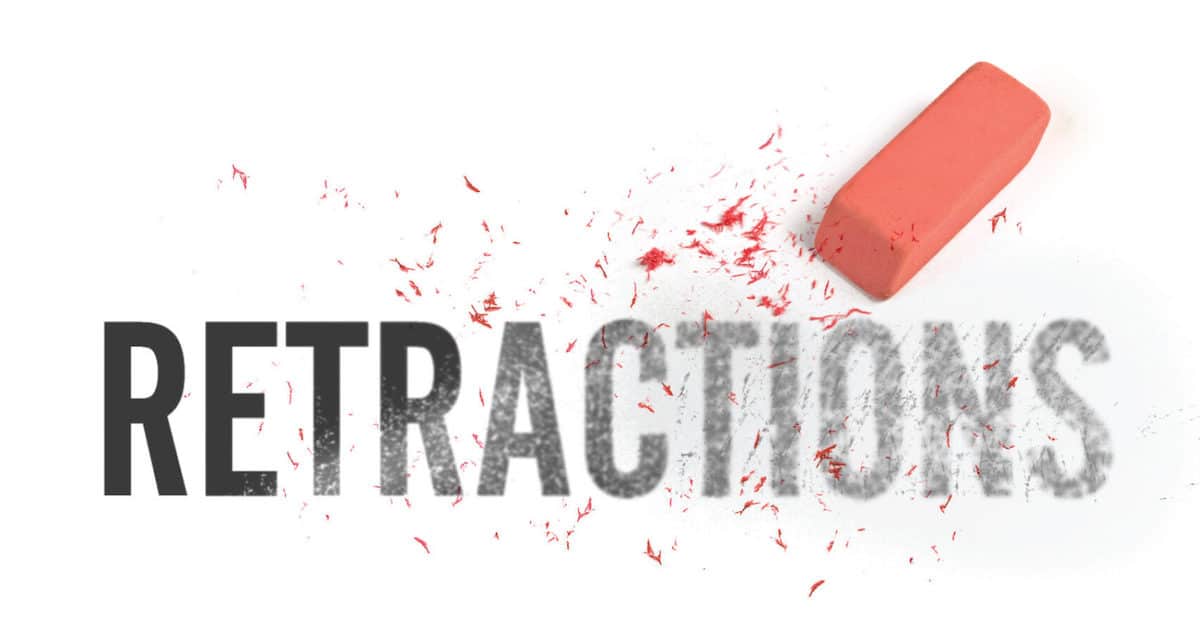I suppose we all have a few memories that cause us to cringe, memories of things we did or things we said that leave shame flooding our minds and little trickles of sweat running down our foreheads. Embarrassing things. Awkward things. Shameful things. Sinful things. Most of us do our best to push these memories away, to do all we can to get them out of our minds. But what if they can actually provide valuable lessons for our own lives and those of other people?
Pat Nemmers once pondered this, and drawing inspiration from David’s confession forever enshrined in the words of Psalm 51, understood that there could be a lot of value in facing these memories and pondering them. After all, humility is often closely related to humiliation. The result is a book titled Retractions: Cultivating Humility After Humiliation. And it’s a good one. “What is the aim of this book?” he asks? “That you will see both God and yourself: when we see God more clearly, we see ourselves more clearly. Then, and only then, can we make the necessary adjustments going forward in life.” We all face humiliating moments in our lives and surely God means to accomplish something through them. “However, my experience from many years of working with people is that most of us, once we have confessed and forsaken our sin, wish the whole thing (including the memories) would all go away. My plea to you in this book is, ‘Don’t do that!’ Instead of wasting your sin, let the many people near and dear to you learn from your humility to prayerfully avoid your pitfall.”
In this book Nemmers shares a number of life lessons that God has taught him through failures and blunders. And with more than 30 years of ministry behind him, not to mention lots of experience being a husband and father, he has had many of them. He refers to these as “retractions,” which he defines as “an honest, humble look at past (and some current) ways of thinking and acknowledgment of my errors in them. Retraction for any of us entails a willingness to openly admit, confess, and repent of our errors and to keep confessing them—not only for our own benefit but also for the benefit of others. It’s about cultivating humility after being humbled.”
And so he begins at the beginning of his Christian life to show the danger of zeal that is accompanied by ignorance instead of knowledge. He discusses the importance of eating crow and of being who God has made him to be rather than attempting to imitate someone else. As the book advances he shows how he once slipped into the lure of legalism, how he came to understand the freedom of a clear conscience, how he stopped selling his church in favor of telling people about Jesus, and how he learned the importance of publicly confessing public sins. In each case he shares an experience or anecdote and describes what the Lord taught him through it. He writes honestly and forthrightly, yet not exhibitionistically. And it leads to a book that is enjoyable to read and that also provides plenty of helpful instruction. I might go so far as to say it’s one of my favorite books of 2022.
“The purpose of this book is to help you, the reader, see the importance not only of confessing and forsaking your own sin and poor judgments in life but, after having done so, of willingly keeping on confessing them. You don’t need further forgiveness, but others need further instructions and are thereby helped by your stories.” He accomplishes this purpose well and does so in a way that will be helpful to every Christian, though I suspect that if there is a specific audience that would benefit the most, it is young pastors. Still, this is a book, and a practice, that is for all of us. And in that vein I’m glad to recommend it.










